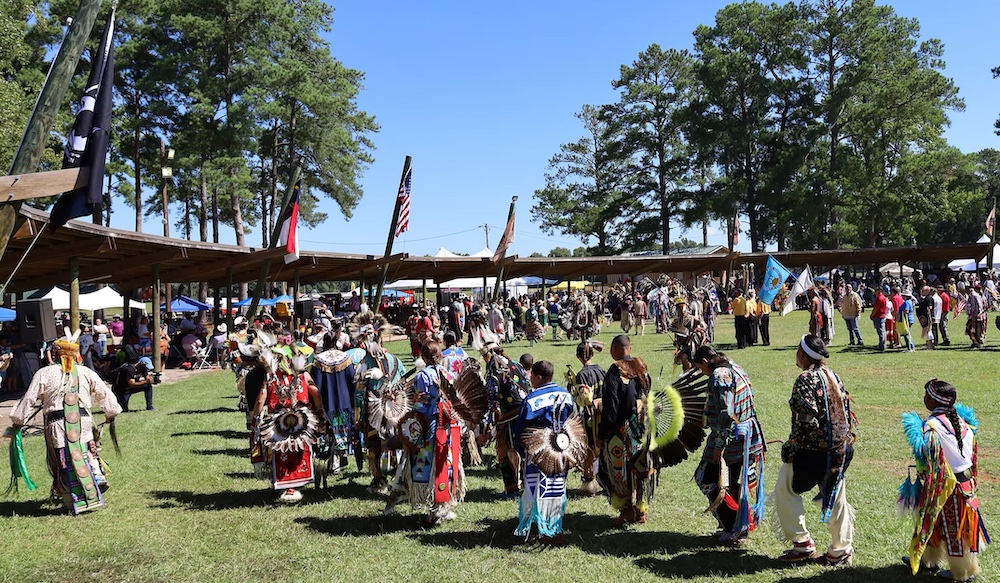
- Details
- By Neely Bardwell
North Carolina lawmakers introduced new legislation on Thursday to federally recognize the Lumbee Tribe of North Carolina, which currently has state recognition only.
The bipartisan Lumbee Fairness Act (H.R. 474), authored by Rep. David Rouzer (R-NC) was co-sponsored by four Republican and three Democratic representatives from North Carolina. The legislation was referred to the House Committee on Natural Resources.
In the upper chamber, North Carolina Sens. Thomas Tillis and Ted Budd, both Republicans, co-sponsored a bill to amend the Lumbee Act of 1956 (S. 107), which was read twice and referred to the Committee on Indian Affairs.
The Lumbee tribe received state recognition in 1885 and has sought full federal recognition since then. The tribe includes more than 55,000 citizens, making it the largest tribe east of the Mississippi River and the ninth-largest tribe in the nation.
“We must right this historic wrong done to the Lumbee Tribe and give them the full federal recognition they deserve," House bill co-sponsor Rep. Richard Hudson said in a statement.
Since 1988, Congress has introduced federal legislation to recognize the Lumbee Tribe more than 30 times, including bills by Rep. Hudson. Bipartisan legislation has passed the House six times, most recently in December 2024. However, none of these bills have become law.
In 1956, Congress introduced legislation to recognize the Lumbee as an Indian Tribe through the Lumbee Act, but the bill denied the tribe access to federal services and benefits associated with federal recognition.
“The House of Representatives passed the Lumbee Fairness Act (last month), and I am pleased to learn Congressmen David Rouzer and Mark Harris are reintroducing the bill once again,” Lumbee Tribal Chairman John Lowery said. “We have so much momentum for our bill, and I look forward to working with them to get this passed in the House during the 119th Congress.”
The Eastern Band of Cherokee, which is federally recognized, has opposed federal recognition of the Lumbee. In 2020, when a similar recognition bill passed in the House, Cherokee and Choctaw tribal representatives wrote to Congress opposing the measure, citing “doubt and uncertainty” about the Lumbees’ lineage and genealogy.
In October 2024, controversy arose over the Lumbee recognition effort when unauthorized cards opposing the tribe's federal recognition were distributed at the National Congress of American Indians' annual convention in Las Vegas. The materials, which bore the United Indian Nations of Oklahoma's logo, prompted NCAI to issue an apology to the Lumbee Tribe and disavow the distribution of what it called "inflammatory materials" that violated the organization's code of conduct.
President-elect Donald Trump, who will take office on Monday, Jan. 20, previously voiced his support in recognizing the Lumbee Tribe, making federal recognition after nearly 140 years of efforts possible.
More Stories Like This
Native News Weekly (August 25, 2024): D.C. BriefsUS Presidents in Their Own Words Concerning American Indians
Top Five Most-Read Stories in 2025 on Native News Online
Tribal Nations in SD are Betting on Tourism on Reservations
This Day in History — Dec. 29, 1890: Hundreds of Lakota Killed During the Wounded Knee Massacre
Help us defend tribal sovereignty.
At Native News Online, our mission is rooted in telling the stories that strengthen sovereignty and uplift Indigenous voices — not just at year’s end, but every single day.
Because of your generosity last year, we were able to keep our reporters on the ground in tribal communities, at national gatherings and in the halls of Congress — covering the issues that matter most to Indian Country: sovereignty, culture, education, health and economic opportunity.
That support sustained us through a tough year in 2025. Now, as we look to the year ahead, we need your help right now to ensure warrior journalism remains strong — reporting that defends tribal sovereignty, amplifies Native truth, and holds power accountable.
 The stakes couldn't be higher. Your support keeps Native voices heard, Native stories told and Native sovereignty defended.
The stakes couldn't be higher. Your support keeps Native voices heard, Native stories told and Native sovereignty defended.
Stand with Warrior Journalism today.
Levi Rickert (Potawatomi), Editor & Publisher


